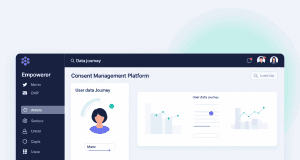In our increasingly digital world, personal data has become a valuable commodity, sparking numerous discussions about privacy rights and data protection. The recently enacted Personal Data Protection Act (PDPA) of 2023 marks a crucial step in addressing these concerns and ensuring that individuals have more control over their personal information. Here’s what you need to know about this legislation and what it means for your daily life.
Understanding the Personal Data Protection Act 2023
The PDPA 2023 is designed to protect individuals’ personal data from misuse and unauthorized access. The Act establishes guidelines for how organizations can collect, process, and store personal information. It harmonizes existing laws and introduces new rights for individuals, aiming to create a more transparent and accountable framework for data management.
Key Provisions of the PDPA 2023
Enhanced Consent Requirements:
Organizations must obtain explicit consent from individuals before collecting their personal data. This entails providing clear information about how data will be used, giving individuals the right to refuse or withdraw consent.Data Minimization:
The Act promotes the principle of data minimization, where organizations are encouraged to collect only the data necessary for their stated purposes. This reduces the risk of data breaches and helps protect individuals’ privacy.User Rights:
Individuals gain new rights under the PDPA, including:- Access: The right to access personal data held by organizations.
- Rectification: The right to request corrections to inaccurate data.
- Erasure: The right to request the deletion of personal data when it is no longer necessary.
Data Breach Notifications:
Organizations are required to promptly notify individuals and relevant authorities in the event of a data breach. This transparency allows individuals to take necessary precautions.- Accountability and Compliance:
Organizations must develop comprehensive data protection policies, appoint data protection officers, and conduct data impact assessments to ensure compliance with the Act.
Implications for Individuals
Increased Control Over Personal Data
With the PDPA 2023, individuals have more control over their personal data. This legislation empowers you to dictate how your information is used, promoting a culture of consent and respect for privacy.
Greater Transparency
The obligations placed on organizations to disclose how they handle personal data foster a sense of transparency. You can know precisely what data is being collected, how it is being used, and who it is shared with.
Improved Security Measures
As organizations strive to comply with the PDPA’s stringent requirements, you can expect enhanced security measures to protect your data. This may include better encryption, regular security audits, and more cautious data handling practices.
Responsibility of Staying Informed
While the PDPA aims to protect your data, it also requires you to take an active role in understanding your rights. Familiarize yourself with the Act, and know how to exercise your rights concerning your personal data.
What Organizations Must Do
Organizations are now accountable for how they manage your personal data. This means they must:
- Develop Clear Policies: Clearly outline data protection policies to comply with the PDPA.
- Train Employees: Ensure that staff members are aware of their responsibilities regarding data protection.
- Implement Security Measures: Invest in technology and practices to safeguard personal information.
Conclusion
The Personal Data Protection Act 2023 represents a significant advancement in the landscape of data privacy. For individuals, this legislation not only enhances your rights but also places the onus on organizations to handle personal data responsibly. As you navigate a world where data privacy is paramount, staying informed and proactive is essential. Embrace these changes as steps toward a safer and more secure digital future where your personal information is respected and protected.









